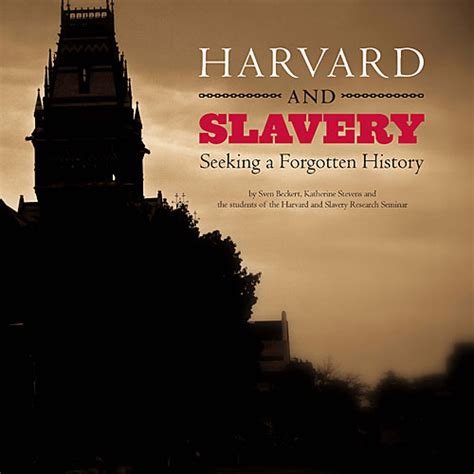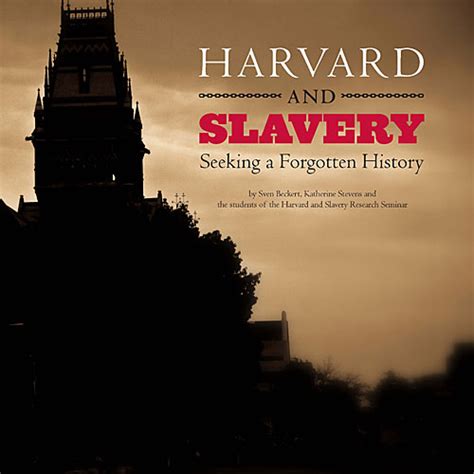
A white protester’s impassioned plea to National Guard members during a demonstration against Immigration and Customs Enforcement (ICE) in Massachusetts went viral, with many praising his words as a powerful call for empathy and moral responsibility. The man, identified as a U.S. Army veteran, challenged the guardsmen to consider the ethical implications of their role in enforcing immigration policies, urging them to reflect on whether they were upholding justice or participating in actions that history would judge unfavorably.
Video footage of the encounter shows the protester engaging in a calm but firm dialogue with the National Guard, questioning their involvement in ICE operations and appealing to their sense of humanity. The video, which circulated widely on social media platforms, sparked widespread discussion about the role of law enforcement and military personnel in the implementation of immigration laws, as well as the moral complexities faced by individuals tasked with enforcing policies they may personally disagree with.
The demonstration took place outside an undisclosed ICE facility in Massachusetts, where activists have been gathering to protest the agency’s practices, including detention and deportation policies. The protester’s remarks resonated with many who believe that ICE’s actions are unjust and inhumane, and that individuals have a moral obligation to resist participating in such actions.
“You are human beings,” the protester is heard saying in the video. “You have a choice. You don’t have to do this. You can stand down. You can say no. You can be on the right side of history.” He further emphasized the importance of individual conscience, imploring the guardsmen to consider the long-term consequences of their actions and the potential for future regret.
The incident has ignited a broader conversation about the ethics of immigration enforcement and the responsibilities of individuals within the system. Supporters of the protester’s actions argue that his words highlight the moral imperative to challenge unjust laws and policies, while critics contend that the National Guard members are simply fulfilling their duty to uphold the law.
The National Guard has not yet released an official statement regarding the incident. However, the widespread attention it has received underscores the ongoing tensions surrounding immigration policy and the growing calls for reform.
The Viral Video and its Impact
The video of the protester’s interaction with the National Guard quickly gained traction online, amassing millions of views and sparking widespread debate across social media platforms. Many users lauded the protester’s courage and eloquence, praising his ability to articulate the moral concerns surrounding ICE’s actions in a way that resonated with a broad audience. Others shared personal stories of how immigration policies had impacted their lives or the lives of their loved ones, further amplifying the emotional weight of the issue.
The video also prompted discussions about the role of social media in shaping public opinion and influencing political discourse. Some commentators noted that the rapid spread of the video demonstrated the power of citizen journalism and the ability of individuals to bypass traditional media outlets to share information and mobilize support for a cause. Others cautioned against the potential for misinformation and the echo chamber effect of social media, urging viewers to critically evaluate the information they consume and engage in respectful dialogue with those who hold differing viewpoints.
Context: Protests Against ICE
The demonstration in Massachusetts is part of a larger nationwide movement against ICE and its policies. For years, activists and advocacy groups have organized protests, rallies, and other forms of civil disobedience to raise awareness about the agency’s practices and demand reforms. These protests have often targeted ICE facilities, government buildings, and other locations associated with immigration enforcement.
Critics of ICE argue that the agency’s actions, including its detention and deportation policies, violate human rights and due process. They point to instances of family separation, prolonged detention periods, and inadequate medical care in ICE detention centers as evidence of systemic problems within the agency. They also argue that ICE’s enforcement priorities disproportionately target minority communities and contribute to racial profiling.
Supporters of ICE, on the other hand, maintain that the agency is essential for enforcing immigration laws and maintaining national security. They argue that ICE’s actions are necessary to remove individuals who pose a threat to public safety and to deter illegal immigration. They also contend that ICE operates within the bounds of the law and that its policies are consistent with the government’s responsibility to protect its borders.
The Ethical Dilemma of Law Enforcement
The protester’s remarks to the National Guard members highlight the ethical dilemma faced by individuals tasked with enforcing laws and policies that they may personally disagree with. Law enforcement and military personnel often find themselves in situations where they are required to carry out orders that conflict with their own moral values or beliefs.
This dilemma raises questions about the nature of obedience, the limits of authority, and the individual’s responsibility to challenge unjust orders. Some argue that individuals have a moral obligation to disobey orders that violate fundamental human rights or ethical principles. Others maintain that law enforcement and military personnel have a duty to uphold the law, regardless of their personal opinions.
The debate over the ethics of law enforcement is particularly relevant in the context of immigration policy, where there are deep divisions over the moral implications of detention and deportation. The protester’s words serve as a reminder that individuals within the system have a choice and that they can choose to stand up for what they believe is right, even if it means risking their careers or facing legal consequences.
Legal and Constitutional Considerations
The debate surrounding ICE’s policies also involves legal and constitutional considerations. Critics of the agency argue that some of its practices violate the Fourth Amendment, which protects against unreasonable searches and seizures, and the Fifth Amendment, which guarantees due process of law. They also point to international human rights laws that prohibit arbitrary detention and deportation.
Supporters of ICE, on the other hand, argue that the agency’s actions are authorized by federal immigration laws and that they are consistent with the government’s power to regulate immigration. They also contend that individuals who violate immigration laws do not have the same rights as citizens and that they can be detained and deported without the same level of due process.
The legal and constitutional issues surrounding immigration policy are complex and subject to ongoing litigation. Courts have often struggled to balance the government’s interest in enforcing immigration laws with the individual rights of immigrants. The Supreme Court has played a significant role in shaping immigration law, and its decisions continue to have a profound impact on the lives of millions of people.
The Role of the National Guard
The involvement of the National Guard in immigration enforcement raises questions about the appropriate use of military personnel in domestic affairs. Under the Posse Comitatus Act, the military is generally prohibited from engaging in law enforcement activities within the United States. However, there are exceptions to this rule, including situations where the President authorizes the use of the military to suppress insurrections or enforce federal laws.
In recent years, the National Guard has been deployed to the border to assist with immigration enforcement efforts. These deployments have been controversial, with some critics arguing that they violate the Posse Comitatus Act and militarize the border. Supporters of the deployments argue that they are necessary to support border security and to assist law enforcement agencies that are overwhelmed by the influx of migrants.
The protester’s interaction with the National Guard members highlights the difficult position they are in. They are tasked with carrying out orders from their superiors, but they also have a responsibility to uphold the Constitution and to respect the rights of individuals. The protester’s words challenge them to consider the ethical implications of their actions and to make a choice about whether they are willing to participate in policies that they believe are unjust.
The Future of Immigration Policy
The debate over immigration policy is likely to continue for the foreseeable future. There are deep divisions in American society over the issue, and there is no easy consensus on how to address the challenges of immigration. The upcoming presidential election is likely to be a referendum on immigration policy, with the two major parties offering starkly different visions for the future.
The outcome of the election will have a significant impact on the direction of immigration policy. A Democratic victory could lead to reforms that would provide a pathway to citizenship for undocumented immigrants, expand access to legal immigration channels, and reduce the emphasis on enforcement. A Republican victory could lead to a continuation of current policies, including increased border security, stricter enforcement of immigration laws, and efforts to limit legal immigration.
Regardless of the outcome of the election, it is clear that immigration will remain a central issue in American politics for years to come. The protester’s words serve as a reminder that the debate over immigration is not just about laws and policies; it is also about values, ethics, and the kind of society we want to create.
Frequently Asked Questions (FAQ)
1. What exactly did the protester say to the National Guard members?
The protester, identified as a U.S. Army veteran, engaged the National Guard members in a calm but firm dialogue, questioning their involvement in ICE operations. He appealed to their sense of humanity and moral responsibility, urging them to consider the ethical implications of their role in enforcing immigration policies. He specifically said, “You are human beings. You have a choice. You don’t have to do this. You can stand down. You can say no. You can be on the right side of history.” He implored them to think about the long-term consequences of their actions and the potential for future regret.
2. Where did this demonstration against ICE take place?
The demonstration took place outside an undisclosed ICE facility in Massachusetts. The exact location was not specified in the source article, but it was mentioned that activists have been gathering at various locations to protest the agency’s practices, including detention and deportation policies.
3. Why are people protesting against ICE?
People are protesting against ICE due to concerns over the agency’s practices, particularly its detention and deportation policies. Critics argue that these policies violate human rights and due process, leading to family separation, prolonged detention periods, and inadequate medical care in detention centers. They also argue that ICE’s enforcement disproportionately targets minority communities and contributes to racial profiling.
4. What is the Posse Comitatus Act, and how does it relate to the National Guard’s involvement in immigration enforcement?
The Posse Comitatus Act generally prohibits the use of the military, including the National Guard, for law enforcement activities within the United States. However, there are exceptions, such as when the President authorizes the use of the military to suppress insurrections or enforce federal laws. The National Guard’s deployment to the border to assist with immigration enforcement has been controversial, with some arguing that it violates the Act and militarizes the border, while others argue it is necessary to support border security.
5. What has been the public reaction to the video of the protester’s interaction with the National Guard?
The video has gone viral, sparking widespread debate on social media platforms. Many have praised the protester’s courage and eloquence, finding his words a powerful articulation of the moral concerns surrounding ICE’s actions. Others have shared personal stories of how immigration policies have impacted them or their loved ones. However, some caution against potential misinformation and echo chamber effects on social media, urging viewers to critically evaluate the information and engage in respectful dialogue.
In-depth analysis and expanded context:
The viral video of the white protester’s interaction with the National Guard members at the ICE demonstration encapsulates a confluence of critical issues that define the contemporary landscape of immigration policy and its moral implications. The incident, while seemingly isolated, serves as a microcosm of the broader societal tensions and ethical dilemmas that permeate discussions surrounding immigration enforcement in the United States.
The protester’s background as a U.S. Army veteran adds a layer of complexity to the narrative. His appeal to the National Guard members carries additional weight, given his shared experience in military service and his understanding of the chain of command. By invoking their shared humanity and moral obligations, he challenges them to transcend their role as enforcers of policy and consider the broader ethical implications of their actions. This direct appeal to individual conscience is a recurring theme in civil disobedience movements throughout history, highlighting the tension between obedience to authority and adherence to moral principles.
The demonstration itself is indicative of the sustained and widespread opposition to ICE’s policies and practices. For years, advocacy groups and activists have organized protests and rallies to raise awareness about what they perceive as unjust and inhumane treatment of immigrants. These actions are often rooted in concerns about family separation, prolonged detention, and the lack of due process for those facing deportation. The protesters view ICE’s enforcement priorities as discriminatory and contributing to the erosion of civil liberties.
The involvement of the National Guard in immigration enforcement raises fundamental questions about the role of the military in domestic affairs. The Posse Comitatus Act, enacted in 1878, was designed to prevent the military from interfering in civilian law enforcement activities. The Act reflects a long-standing concern about the potential for military overreach and the preservation of civilian control over law enforcement. However, the Act has been subject to various interpretations and exceptions, particularly in the context of border security and drug interdiction. The deployment of the National Guard to the border has been justified by some as a necessary measure to support overwhelmed law enforcement agencies and to enhance national security. Critics, on the other hand, argue that it blurs the lines between military and civilian roles and contributes to the militarization of the border.
The ethical dilemma faced by law enforcement and military personnel tasked with enforcing immigration laws is a central theme of the incident. These individuals are often caught between their duty to obey orders and their personal moral beliefs. The protester’s words directly address this dilemma, challenging the National Guard members to consider whether their actions are aligned with their conscience and whether they are contributing to a just outcome. This tension between obedience and conscience is a recurring theme in ethical philosophy and has been explored in various contexts, from the Nuremberg trials to the My Lai massacre. The protester’s appeal underscores the importance of individual responsibility and the potential for individuals to make a difference, even within a hierarchical system.
The legal and constitutional considerations surrounding immigration policy are complex and multifaceted. The Fourth Amendment, which protects against unreasonable searches and seizures, and the Fifth Amendment, which guarantees due process, are often invoked in legal challenges to ICE’s practices. International human rights laws, such as the Universal Declaration of Human Rights, also provide a framework for evaluating the ethical and legal implications of immigration policies. The Supreme Court has played a significant role in shaping immigration law, and its decisions continue to have a profound impact on the lives of immigrants and the scope of government authority. The legal debates surrounding immigration policy are often intertwined with broader questions about national sovereignty, border security, and the rights of non-citizens.
The future of immigration policy in the United States remains uncertain. The issue is deeply polarized, and there are starkly different visions for how to address the challenges of immigration. The upcoming presidential election will likely be a pivotal moment in shaping the direction of immigration policy for years to come. The outcome of the election will determine whether the country moves toward a more restrictive or a more inclusive approach to immigration. Regardless of the political outcome, the debate over immigration is likely to continue to be a defining feature of American politics and society.
The viral video of the protester’s interaction with the National Guard serves as a reminder that the immigration debate is not just about numbers and statistics. It is about human beings, their stories, and their aspirations. It is about the values that define American society and the kind of future the country wants to create. The protester’s words challenge individuals to engage in critical reflection and to consider their own role in shaping the future of immigration policy. The incident underscores the importance of empathy, compassion, and a commitment to upholding human rights in the face of complex and challenging social issues.
The enduring power of the video lies in its ability to personalize the abstract concepts of immigration policy and to make the moral implications of these policies tangible. By focusing on the human interaction between the protester and the National Guard members, the video highlights the potential for dialogue, understanding, and ultimately, change. It serves as a reminder that even in the midst of political polarization and social division, individuals have the power to make a difference and to challenge the status quo. The video’s viral success suggests that there is a deep reservoir of concern and compassion within American society and that many people are seeking ways to engage in meaningful action on immigration issues. The incident ultimately underscores the importance of civic engagement, moral courage, and a commitment to building a more just and equitable society for all.









